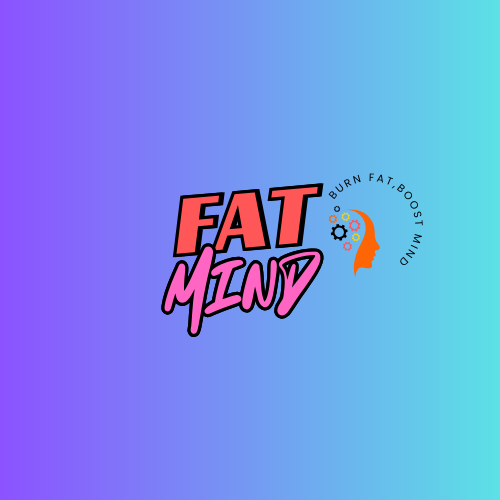Introduction: The Link Between Inflammation and Belly Fat
Belly fat is more than just an aesthetic concern it is closely linked to chronic inflammation, which contributes to obesity, metabolic disorders, and mental health issues. When the body experiences long-term inflammation, it disrupts hormonal balance, insulin sensitivity, and fat metabolism, making it difficult to lose weight.
The good news is that certain foods have natural anti-inflammatory properties that help reduce belly fat by regulating blood sugar, improving digestion, and balancing hormones. This article explores the best anti-inflammatory foods to include in your diet and explains how they work to combat stubborn belly fat.
Understanding Chronic Inflammation and Fat Storage
How Inflammation Leads to Belly Fat Accumulation
Inflammation is the body’s natural defense mechanism against injury and infection. However, poor diet, stress, lack of sleep, and environmental toxins can cause chronic inflammation, leading to:
- Increased fat storage around the abdomen
- Insulin resistance and difficulty burning fat
- Higher levels of cortisol, the stress hormone that promotes belly fat
- Gut imbalances that affect digestion and nutrient absorption
Reducing inflammation through diet can help lower cortisol, improve metabolism, and support fat loss, especially in the abdominal region.
The Best Anti-Inflammatory Foods for Reducing Belly Fat
1. Fatty Fish for Omega-3s and Hormonal Balance
Fatty fish like salmon, mackerel, sardines, and trout are rich in omega-3 fatty acids, which reduce inflammation and regulate insulin. Omega-3s also improve brain function, lower stress levels, and promote fat-burning hormones.
2. Leafy Greens for Detoxification and Metabolism
Spinach, kale, Swiss chard, and arugula contain antioxidants, fiber, and essential vitamins that fight inflammation and support digestion. These vegetables help detoxify the liver, which plays a key role in metabolizing fat.
3. Berries for Blood Sugar Control
Blueberries, strawberries, raspberries, and blackberries are packed with polyphenols and fiber, which help stabilize blood sugar levels. Since blood sugar spikes contribute to fat storage, consuming berries can reduce cravings and support belly fat loss.
4. Turmeric for Reducing Inflammatory Hormones
Curcumin, the active compound in turmeric, has powerful anti-inflammatory and antioxidant properties. It helps regulate cortisol and insulin, two hormones that influence belly fat storage. Pairing turmeric with black pepper enhances its absorption.
5. Nuts and Seeds for Healthy Fats and Satiety
Almonds, walnuts, flaxseeds, and chia seeds contain omega-3 fatty acids, fiber, and protein, which help reduce inflammation and keep hunger levels stable. Their healthy fat content supports hormonal balance and brain health.
6. Extra Virgin Olive Oil for Fat Metabolism
Olive oil is rich in monounsaturated fats and polyphenols, which help reduce inflammation, improve heart health, and enhance fat metabolism. Using olive oil as a dressing or cooking oil can support weight loss efforts.
7. Green Tea for Fat Oxidation and Stress Reduction
Green tea contains catechins and antioxidants that promote fat-burning and metabolic health. It also helps lower cortisol levels, reducing stress-related belly fat accumulation.
8. Garlic and Onions for Gut Health and Detoxification
Garlic and onions contain sulfur compounds that help reduce inflammation and support gut bacteria balance. A healthy gut is essential for nutrient absorption and proper digestion, both of which play a role in fat loss.
9. Fermented Foods for Digestive Health
Kimchi, sauerkraut, kefir, and yogurt provide probiotics that support gut health. Since an unhealthy gut contributes to inflammation and weight gain, consuming probiotic-rich foods can improve digestion and help regulate fat storage.
10. Dark Chocolate for Stress Reduction
Dark chocolate with at least 70% cocoa is rich in flavonoids, which reduce inflammation and lower cortisol levels. In moderation, it can support mental well-being and reduce stress-related food cravings.
How to Incorporate These Foods Into Your Diet
Build a Balanced Plate with Anti-Inflammatory Ingredients
A diet focused on whole, unprocessed foods can significantly reduce inflammation and support fat loss. A well-balanced meal should include:
- A lean protein source (fish, poultry, tofu)
- A serving of fiber-rich vegetables (spinach, kale, broccoli)
- A healthy fat (olive oil, nuts, seeds)
- A complex carbohydrate (quinoa, sweet potatoes, lentils)
Replace Inflammatory Foods with Healthier Alternatives
Refined carbs, processed foods, and artificial additives contribute to inflammation and weight gain. Consider replacing:
- White bread → Whole-grain or sprouted bread
- Sugary snacks → Berries and dark chocolate
- Fried foods → Oven-roasted or grilled alternatives
- Vegetable oils → Extra virgin olive oil or avocado oil
Stay Hydrated and Limit Sugary Beverages
Drinking plenty of water helps flush out toxins and supports digestion. Reducing soda, alcohol, and sugary coffee drinks can prevent blood sugar spikes that contribute to belly fat accumulation.
Conclusion: Using Nutrition to Reduce Belly Fat and Inflammation
Inflammation is a key factor in belly fat accumulation and metabolic health. By incorporating anti-inflammatory foods into your diet, you can help balance hormones, stabilize blood sugar, improve digestion, and support fat loss.
Making small dietary changes, such as choosing whole foods over processed ones and prioritizing gut-friendly meals, can have a lasting impact on both your physical and mental well-being.
Next Steps:
- Try This: [Best Lifestyle Habits to Reduce Chronic Inflammation]
- Read More: [How Gut Health Affects Belly Fat and Mental Well-being]
